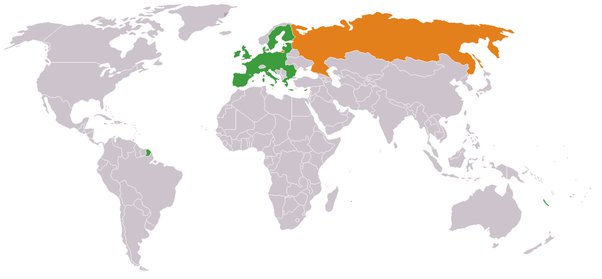There are a number of reasons why there is so much insecurity amongst Eastern Europeans, especially Romanians.
- Historical factors. Eastern Europe has a long and turbulent history, marked by invasions, occupations, and wars. This has left a legacy of insecurity and distrust, which is often felt more acutely in countries like Romania, which have been on the receiving end of foreign aggression more recently.
- Economic factors. Eastern Europe is still recovering from the economic collapse of the 1990s, and many countries in the region are still struggling with high levels of poverty and unemployment. This can lead to feelings of insecurity and anxiety, as people worry about their ability to provide for themselves and their families.

- Political factors. Many Eastern European countries have experienced political instability in recent years, with frequent changes of government and a rise in populism and nationalism. This can create a sense of uncertainty and insecurity, as people worry about the future of their country and their place in the world.
- Cultural factors. Eastern European culture is often characterized by a sense of fatalism and pessimism. This can lead to people feeling that they have little control over their own lives, and that they are at the mercy of forces beyond their control.
The war in Ukraine has also exacerbated these feelings of insecurity, as it has brought the threat of Russian aggression closer to home. This has led to a renewed sense of vulnerability among Eastern Europeans, and has raised questions about the future of the region.
It is important to note that not all Eastern Europeans feel insecure. There are many people in the region who are confident and optimistic about the future. However, the factors mentioned above have created a climate of insecurity that is felt by many people in Eastern Europe.
There are a number of things that can be done to address the insecurity in Eastern Europe. These include:
- Investing in economic development. This will help to reduce poverty and unemployment, and create a sense of hope and optimism for the future.
- Promoting political stability. This will help to create a more predictable and secure environment for businesses and individuals.
- Empowering people. This will help people to feel more in control of their own lives, and less at the mercy of forces beyond their control.
- Promoting a culture of hope and optimism. This will help to counter the sense of fatalism and pessimism that is often found in Eastern European culture.
Addressing the insecurity in Eastern Europe is a complex challenge, but it is one that is essential for the future of the region.